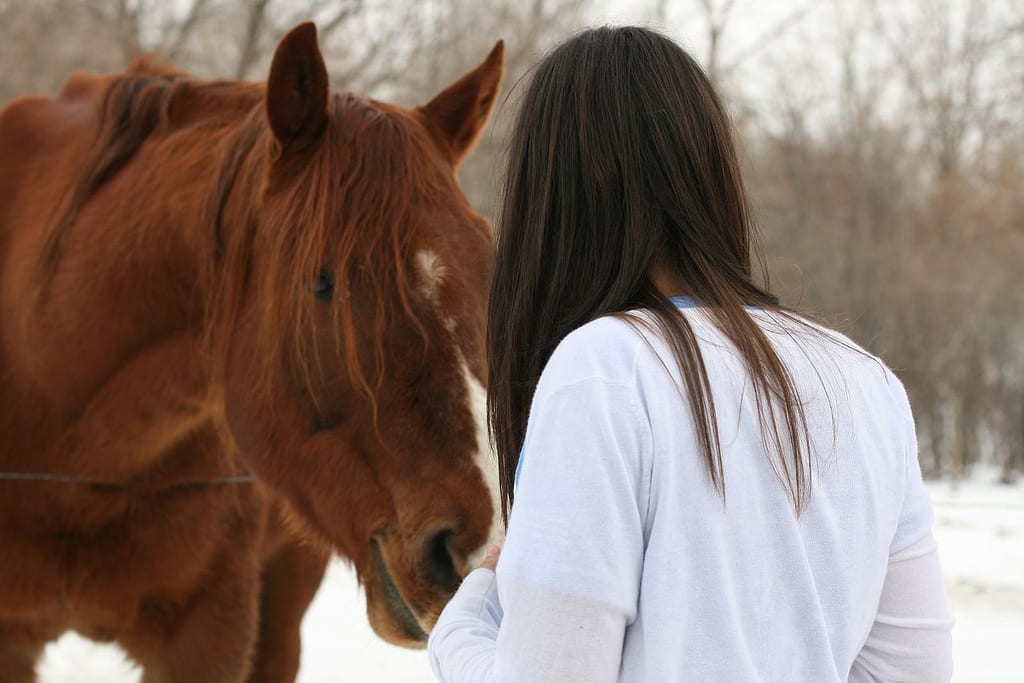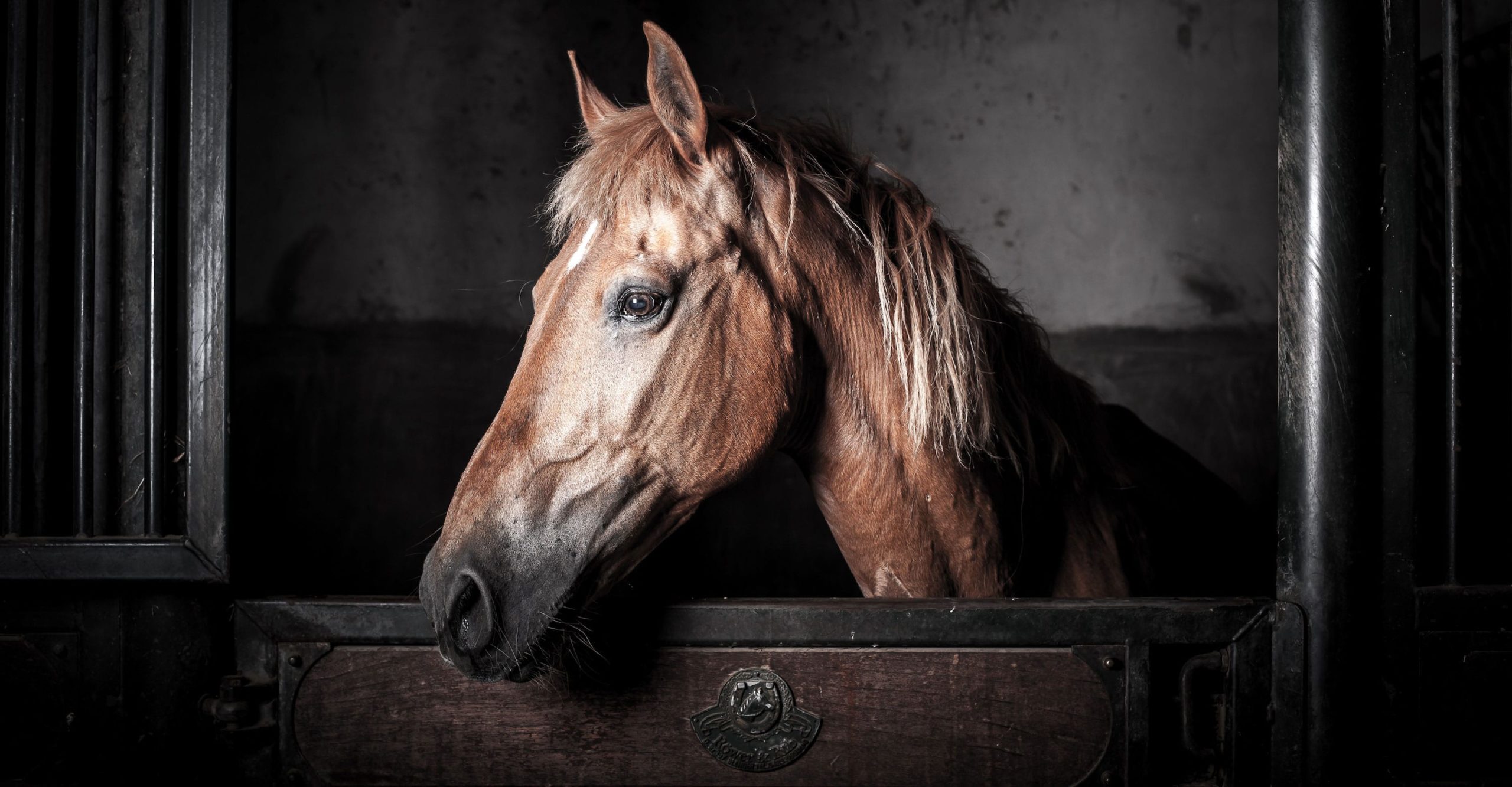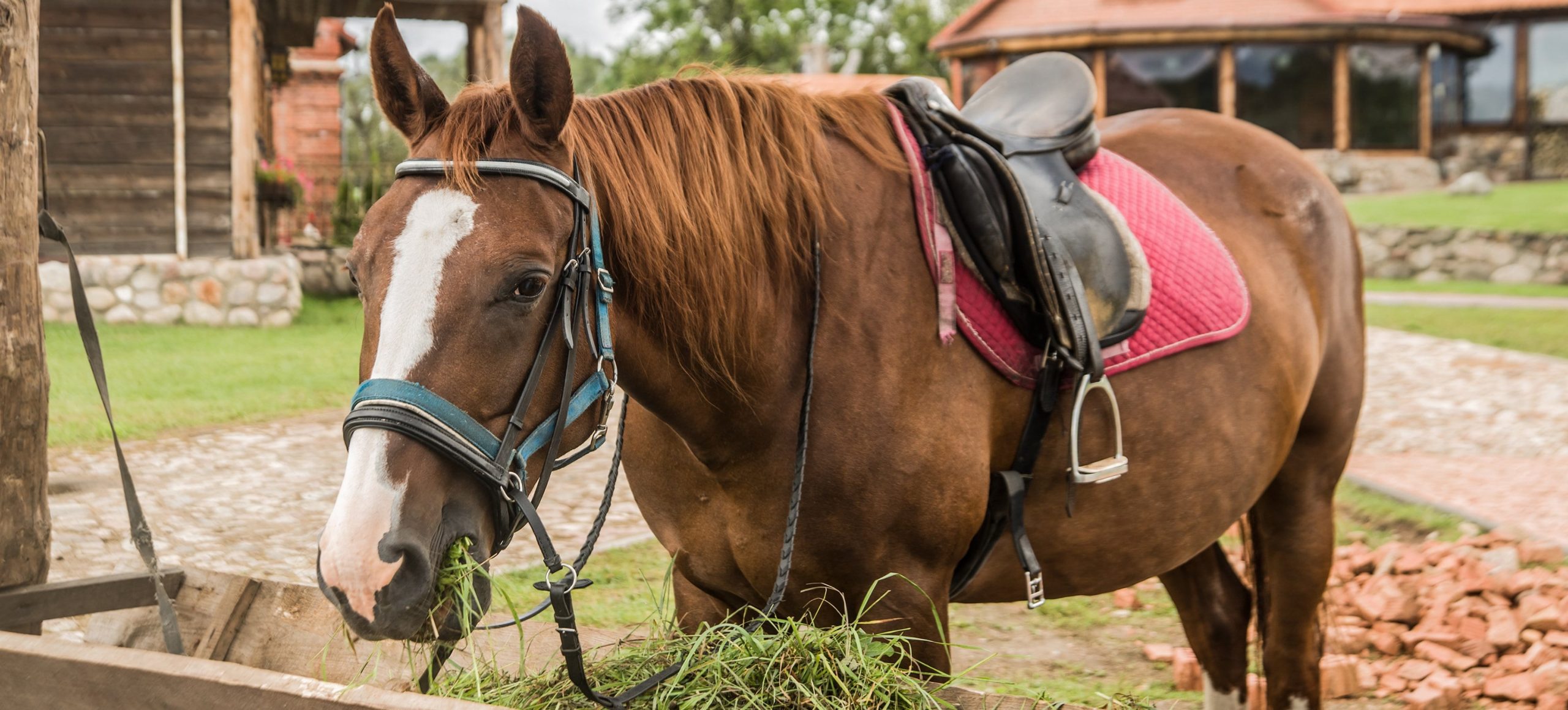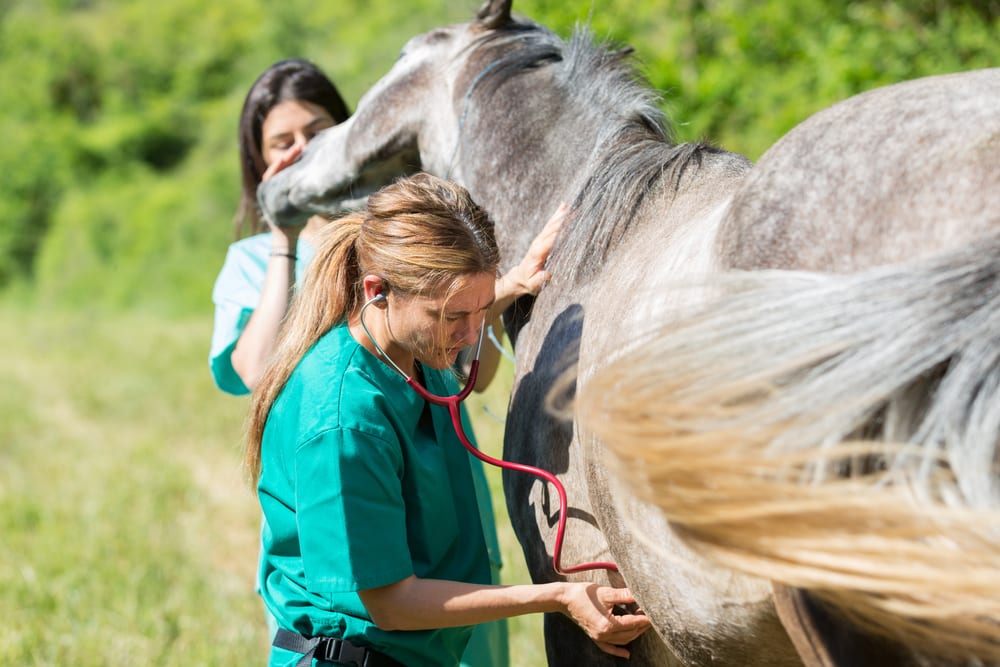When the temperatures fall and your horse starts looking like an icy lawn ornament, it’s tempting to rush out to the barn bearing treats: warm blankets, space heaters and maybe even a hot bran mash.
It’s not surprising that so many horse owners fall under the spell of a hot, steaming bucket of wheat or rice bran with some carrots and apples or molasses mixed in. It’s basically the equivalent of making chicken soup for a sick friend — seems like just what the doctor ordered to help heat your horse up.
Think again. Feeding a horse a hot bran mash won’t help warm him up. And in fact, it might even make him feel colder. That’s because horses don’t warm up via heat transfer, the way we do. Instead, the easier you make it for your horse to digest his food, the harder it will be for him to keep warm.
How Horses Actually Stay Warm
Horses stay warm by growing a thick, insulating coat, and by taking shelter from snow and rain. They also stay warm by eating. A lot. Horses produce an impressive amount of heat by simply digesting their food. And if you think about it, that makes sense: the horse’s digestive system is complicated. Food is required to go through several different steps, from chewing, to breaking it down in the stomach, then on to absorption in the small intestine, on to the hindgut, where fibrous materials are slowly broken down over the course of 2-3 days.
Moving food through all of those stages takes time — and energy. The more energy it takes to break down the food, the more heat your horse produces. So if it takes more energy to digest high-fiber feeds, such as hay, then it’s going to produce more heat than easily digested low-fiber feeds, like corn, barley, or that wheat- or rice-bran mash.
And as The Horse reports, bran mash provides only a fraction of the nutrition found in other fibrous feeds, such as beet pulp or grass hay. It’s also linked to causing mild digestive upset, either due to a sudden change of diet, or because bran mash contains an unbalanced ratio of calcium to phosphorus that can be problematic.
How to Keep Your Horse Warm
- Give him hay: Provide free-choice hay to your horse to help him stay warm in the wintertime. Researchers estimate that for every ten-degree change below 30 degrees Fahrenheit, horses require approximately 2 pounds more hay per day to stay warm. If other factors — such as wind, precipitation or a lack of shelter — are also introduced, horses need to consume additional calories to stay warm.
- Keep his weight up: Extra calories typically translate to an extra layer of fat — another factor in keeping your horse warm.
- Make sure water troughs are warm and unfrozen: Horses are prone to dehydration during the winter time. Just like us, they don’t always want to drink cold water when the temperature drops. Encourage them to drink by providing warm, clean water.
- Make sure he has a clean bill of health: If your horse isn’t eating enough because he has dental issues, parasites or is too old to digest food properly, feeding free-choice hay won’t help until you address the root of the issue.
- Blanket him, and provide shelter: While cold temperatures are a concern, don’t underestimate the power of sleet and rain to make a horse miserable. Sleet and rain penetrate the hair coat, negating its insulating power and chilling horses quickly, says Scott Leibsle, deputy state veterinarian in Idaho. Always provide horses the option to get out of the weather – even when it’s above freezing.
Feed Hay for Healthier Horses
There’s also a widespread belief that a hot bran mash fed weekly is good for preventing colic during cold weather. Others feed bran mashes to horses they deem need an extra boost, such as a mare that has just given birth, or a horse that has just returned from a long trip. But since hot bran mashes offer little by way of nutrition, and may even harm your horse’s hard-working digestive system, it’s not a good idea. Feed hay or other fibrous materials to keep your horse’s heat up.
Bran mashes can help your horse stay warm = myth. The heat doesn’t actually transfer to your horse, and the strain you’ll put on his digestive system by feeding a nutritionally imbalanced meal that he’s not accustomed to may make him feel even worse.
So the next time the temperature drops, throw your horse an extra flake of hay. And then go put the kettle on for yourself, instead.
Photo by Chris Kanto, licensed via CC2.0




